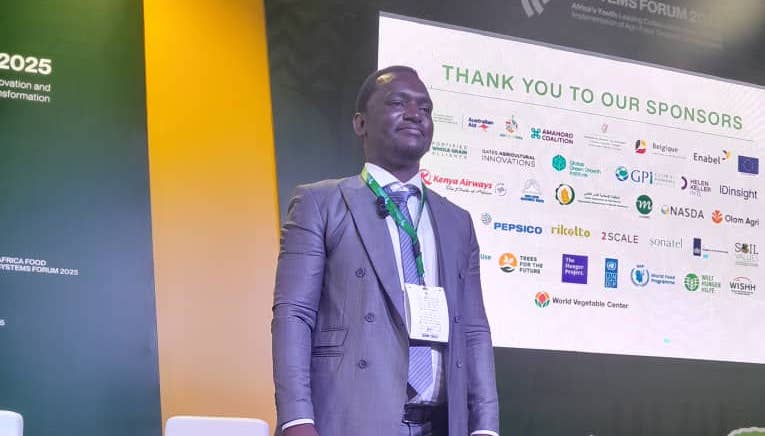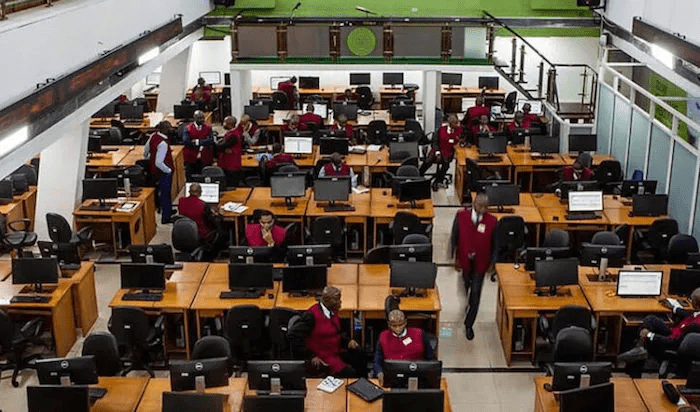•Urges CBN to extend implementation timeline
•Alleges sector now dominated by single southern ethnic group
•Declares development may worsen insecurity, cut jobs, others
James Emejo in Abuja
Arewa Economic Forum (AEF), yesterday, alleged that the new regulatory and supervisory guidelines for Bureau De Change (BDC) operations released by the Central Bank of Nigeria (CBN), which set new minimum capital thresholds for the subsector, posed threats to northern entrepreneurs.
AEF, a coalition of northern business leaders, intellectuals, technocrats, and grassroots stakeholders, particularly stated that the recapitalisation requirements was a “direct threat to thousands of legitimate northern entrepreneurs and their families”.
Speaking at a media briefing on CBN’s new BDC recapitalisation policy, AEF Chairman, Alhaji Ibrahim Dandakata, said the drastic increase in capital levels had adverse implications for northern operators, in particular.
In May 2024, the apex bank introduced new recapitalisation for BDCs, requiring Tier 1 operators to have a minimum capital base of N2 billion.
They were authorised to operate nationally, establish multiple branches, and appoint franchisees with prior approval.
Tier 2 BDCs were also required to possess N500 million minimum capital threshold. They were, however, limited to operations within a single state, with a maximum of five branches, and were not permitted to appoint franchisees.
Prior to the new regulatory framework, the minimum capital requirement for obtaining a BDC licence in the country was N35 million.
However, Dandakata, who spoke alongside Member, Board of Trustees, North Central, Association of Bureaux De Change Operators of Nigeria (ABCON), Alhaji Abdul Wahab Yusuf, said the new capital requirements represented an astronomical increase of over 1,300 per cent to 5,600 per cent, depending on the tier.
He said the burden was “clearly unattainable for many sincere and long-standing BDC operators, especially those who have conducted their business transparently and by the law”.
AEF further stated that out of the over 1,600 registered BDCs in the country, over 90 per cent of those able to meet the new capital requirements were based in the south, with Lagos alone accounting for the overwhelming majority. It alleged that the sector was currently dominated by a single ethnic group.
Dandakata said in “stark contrast, less than 10 per cent of compliant BDCs are owned by northerners, despite the fact that northern traders have historically driven and sustained this sub-sector”.
He said that included operators in long-established hubs, such as Wapa in Kano, Zone 4 in Abuja, Broad Street in Lagos, and major market areas in Sokoto, Minna, Benin, and Port Harcourt.
He said, “Meanwhile, in comparable economies across Africa and beyond, the capital requirements for BDC operations are significantly lower than what is now being proposed in Nigeria.
“Our investigations reveal that countries, such as South Africa, Kenya, Tanzania, Ghana, Egypt, the United Arab Emirates (UAE), and even India maintain substantially more accessible and affordable licensing thresholds, enabling broader participation and fostering financial inclusion without compromising regulatory oversight.”
The forum argued that the high capital requirements had dire implication for northern BDC operators.
Dandakata said, “If left unaddressed, this policy will wipe out the entire northern participation in the BDC space, a sector that has been pivotal to job creation, forex accessibility, and informal financial services in the region for decades.
“We cannot overlook the dangerous security implications of this development. Northern Nigeria is already reeling from the devastating effects of terrorism, rural banditry, and youth unemployment.
“Throwing thousands of BDC operators out of work will only add fuel to a volatile fire.”
The forum, therefore, called on President Bola Tinubu to give the group’s concerns the “serious and urgent attention they deserve”.
It added, “This is not merely an economic policy matter, it is a pressing national security issue.”
AEF urged the National Security Adviser, Malam Nuhu Ribadu, to assess the broader implications of the CBN capitalisation policy for BDCs and act swiftly to prevent the socio-economic fallout that could result from the mass displacement of legitimate BDC operators, especially in northern Nigeria.
The AEF chairman added, “As someone deeply attuned to the region’s fragile security dynamics, we believe it is well within his mandate to ensure that economic exclusion does not compound existing threats to peace and stability.
“On equity and representation, we also call on the Minister of Finance, Mr. Wale Edun, and the Governor of the Central Bank of Nigeria, Mr. Yemi Cardoso, to consider the optics and implications of a policy that many in the north may interpret as systematically exclusionary, particularly because nearly all major financial regulatory institutions—FIRS, SEC, CBN, PENCOM, NSITF and others—are currently dominated by appointees from the south, mostly of Yoruba extraction.
“This is not a call for division; it is a firm plea for equity, fairness, and inclusive economic governance. At the inception of this administration, the AEF had expressed concern over the perceived trend of ‘Yorubanisation’ and ‘Lagos-centric’ concentration of key appointments in Nigeria’s economic institutions.”
He said, “While we recognise the president’s prerogative to appoint trusted individuals, we believe that national unity and balanced development are best achieved when all regions feel fairly represented and meaningfully included in strategic economic decision-making.”
Among other recommendations, the forum sought for extension in the implementation window to allow for continuous exercise “like the process of other financial institutions, or a minimum of six months or ideally one year, to allow for investor sensitisation, capital mobilisation, and regional collaboration”.
Dandakata, stressed that a rushed implementation will create irreversible damage.
The forum also proposed the creation of at least three Tier 1 northern-led BDC consortia to cater to regional operators, adding that regional investment vehicles must be established to pool resources and support smaller BDC operators.
The group urged the CBN to consider friendly, gradual, and inclusive regulatory frameworks, especially for regions where formal capital was scarce while informal finance thrived.
“This is how real development works—through inclusion, not exclusion,” the group added.
It further urged ABCON President, Alhaji Aminu Gwadabe, to demonstrate courage, firmness, and transparency in all ongoing engagements with policymakers on the highly sensitive issue.
AEF stated, “As a respected leader in the sector, he bears the responsibility of ensuring that any negotiated outcomes reflect the interests of all stakeholders—not just established elites, but also the grassroots operators, particularly those from the north who have historically built and sustained the BDC sub-sector over decades.
“This is a defining moment that calls for principled leadership and a commitment to equity within the industry.”
Dandakata said, “If handled correctly, the recapitalisation drive can formalise and strengthen BDC operations. But if mishandled, it may destroy thousands of legitimate northern businesses, deepen regional poverty, worsen youth unemployment, heighten insecurity and erode public trust in national institutions.”
The group called on northern investors, political leaders, and business communities to rise to the challenge, saying, “Let us invest in our own, collaborate across states, and protect this vital industry.”
It stated, “BDC sector has, for decades, ensured financial access in rural and underserved areas, created thousands of jobs, offered flexible foreign exchange solutions, and helped many families survive harsh economic times.
“We must not allow that legacy to be erased in one policy stroke. We at the Arewa Economic Forum believe in a united, equitable, and prosperous Nigeria. We believe in policies that lift all regions, not just a few.
“This moment calls for national reflection and compassionate reform.”


